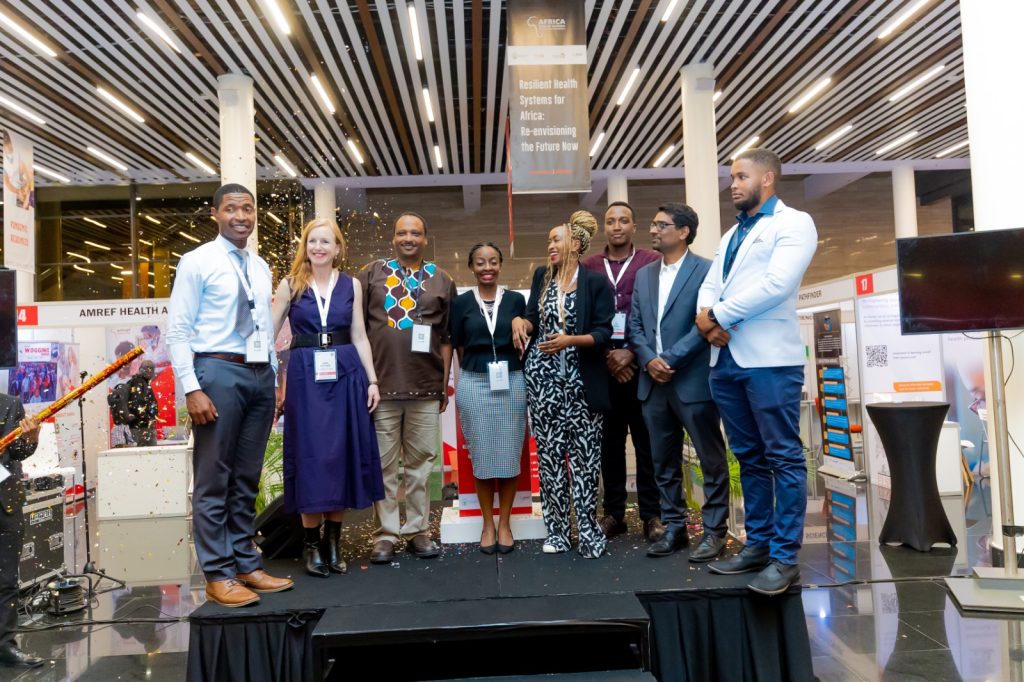AHAIC 2023: Forecasting the rise in mortality from non-communicable diseases in Africa
The conference was been organized in collaboration with the World Health Organization, Amref Health Africa, the Ministry of Health of Rwanda, the United Nations and the African Center for Disease Control and Prevention (Africa CDC)

Health experts have pointed out that this level on the African continent is in danger due to the increase in infectious diseases and the effects of climate change which are killing many people.
It is one of the things that was brought back when the International Conference on the development of health in Africa (The Africa Health International Conference Agenda: AHAIC) was officially opened in Kigali for the fifth time, from 5 to 8 March this year.

The Director General of Amref Health Africa, Dr Githinji Gitahi, said that this conference is taking place in critical times where the African continent has been shaken by the effects of the Covid-19 epidemic, climate change, wars in Africa and elsewhere in the world. and the cost of living.
Although the burden of Covid-19 has decreased, diseases such as Ebola, Cholera and others show that the level of health in Africa is in danger.
The effects of climate change, including droughts, famines and floods, are taking their lives across the continent.
Dr Githinji added that although Africa has a small role in the emission of greenhouse gases and global warming, it is the first to be affected by its effects. Another thing is that the burden of non-communicable diseases in Africa is heavy because 40% of neglected diseases are found on this continent as well as 95% of malaria and 36% of tuberculosis

He said, “Infectious diseases are taking the lives of many of the elderly. By 2030, seven years from now, deaths from non-communicable diseases will exceed those from infectious diseases, child deaths, premature deaths and all women’s deaths combined.” He explained that the death toll from diabetes itself will increase by 28% where 55 million people in Africa will lose their lives from it and about 700 thousand will die from cancer. The problems of climate change have increased the severity of droughts and floods, food shortages and conflicts within societies.
The most vulnerable are women, children, adolescents and the disabled living in poverty, especially those in less secure countries.
However, the leader said the solution is in the hands of Africans if they join forces and work together.
“Africans have the power to determine their future, not only for the well-being of the people of their continent but for everyone in the
Climate change is a health issue
Experts from various fields say that climate change and life are inseparable, yet for many years they were considered two unrelated things.
Rwanda’s Minister of Health, Dr Sabin Nsanzimana, said that people are responsible for destroying the ecosystem and that they must restore it.

He said, “This conference is an opportunity to rethink our responsibility towards the environment we live in and the legacy we will leave to our children. That is what the scientists called “One Health” should guide us as a team that we have a responsibility to protect the environment. “Climate change is a real thing, it’s not a problem of other sectors, it’s a problem of our lives that we need to take care of as soon as possible.”

“One Health” is a collaboration that is required from different levels within the countries and at the international level in order to achieve better health for people, animals and the environment.
Minister Nsanzimana went on to say, “It is the right way to prepare for future epidemics. Diseases can occur, but if we fight them early before they turn into epidemics, it shows that we are well prepared.”
In this meeting, no papers were used for public speaking in the context of environmental protection. Rwanda hosted it this year and will host it next year. It is the International Council that started in Africa by Africans for the benefit of Africans since 2014.

















